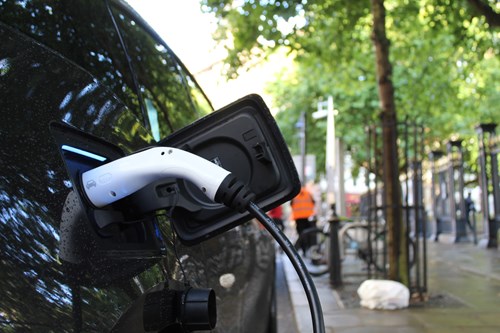
Electric, hybrid and plug-in hybrid (PHEV) cars are more popular than ever, with electric cars making up 26% of sales in December 2021 alone.
The trajectory only seems to be rising too, with the UK government changing the Plug-in Car Grant scheme for zero-emission vehicles to target less expensive models. Electric cars will become a viable option for a large segment of motorists in the country.
The UK currently has over 150,000 plug-in vehicles on the road, in comparison to a mere 3,500 in 2013. The huge increase is owed to the fact that nearly every manufacturer now has at least one hybrid or electric model in their range. This provides a greater level of choice for drivers.
To help you find out more about electric, hybrid and PHEV vehicles, we have compiled a list of frequently asked questions our sales experts are faced with daily and, with their expert knowledge, have provided the answers so you know what to expect when you consider going electric.
Do EVs Feel Different To Drive
Gone are the days when the term ‘milk float’ was ubiquitous with electric vehicles. You’ll find most of the latest supercars use electric motors to increase performance.
The first thing you’ll notice when driving an electric car is the silence, a typical electric hatchback is as quiet as a Rolls-Royce. The handling of an electric car is also very easy, with invariable automatic gears and regenerative braking – the result can be an effortless drive around town.
How Much Do Electric Cars Cost
One of the big EV myths is that electric cars are more expensive than traditional fuel options. However, any initial outlay is usually offset by huge savings on fuel and maintenance along with government grants in place.
So, how much do you save with an electric car? To put it into perspective, a charge giving you a range of around 100 miles will cost £2 to £4 in electricity whereas 100 miles in a petrol or diesel car will cost you around £12 to £15 in fuel.
Will Electric Cars Get Cheaper in the UK
The UK government has laid out plans, announcing all new conventional petrol and diesel cars and vans are set to be banned from sale in 2030. There is no guarantee that electrics, hybrids or PHEV cars will be cheaper, however, it is likely that vehicles running on traditional fossil fuel will increase in price and scarcity.

Does An Electric Car Need A Regular MOT
Almost every vehicle on the road requires MOT testing and electric vehicles are the same. Any EVs, hybrids and PHEV over three years old require an annual inspection to ensure they’re roadworthy. Electric vehicles, however, will not go through emissions testing for obvious reasons.
How Do You Charge An Electric Car
Charging your electric car is as simple as plugging in your mobile phone, this can be done at home, at work or a public charging point. We have a comprehensive article on how to charge an electric car, take a look.
With the recent rise in electric and hybrid cars’ popularity, public EV charging points are becoming more widespread across towns and cities. There are also more standardised connectors to accommodate more vehicles now joining the market.
You’ll be able to find several useful online tools showing the location of charging points across the UK, and many electric cars have Sat-Nav that recognises these locations so you can always plan.
Benefits Of Electric Cars
One of the biggest benefits of electric cars, hybrids or PHEV vehicles is they save you money on fuel and are considerably more environmentally friendly, especially if most of your driving is around town and city roads.
There are many other reasons why you should consider a hybrid. As well as the environmental impact, with compact hybrids emitting 10% fewer smog-producing emissions than their conventional counterparts, you'll also save on running costs.
The government has also introduced several grants and schemes that add to the benefits of electric cars and hybrid vehicles to incentivise drivers to go ‘greener’. These include tax incentives of up to £8,000 and a range of discounts and exemptions from congestion charge zones. If you are looking for specific ULEZ exempt cars, find our up to date guide here.
Cargiant stocks a range of ULEZ compliant models such as:
Where Can I Buy Best Electric Cars 2022
Increased numbers of hybrid and electric cars on the road have resulted in them filtering down into the used market - this is great news for car buyers because they can now enjoy the benefits of owning electric and hybrid vehicles while avoiding those initial high costs of buying one from brand new.
At Cargiant, our expert team of buyers have sourced the best performing and practical hybrid and electric cars in the country. With hundreds to choose from in our stock, you’re certain to find the right option for you. Find the current electric vehicles in stock at Cargiant along with the best second-hand hybrid cars for sale.
Want to learn more about the electric car revolution? Take a look at our ultimate list of electric car stats.
